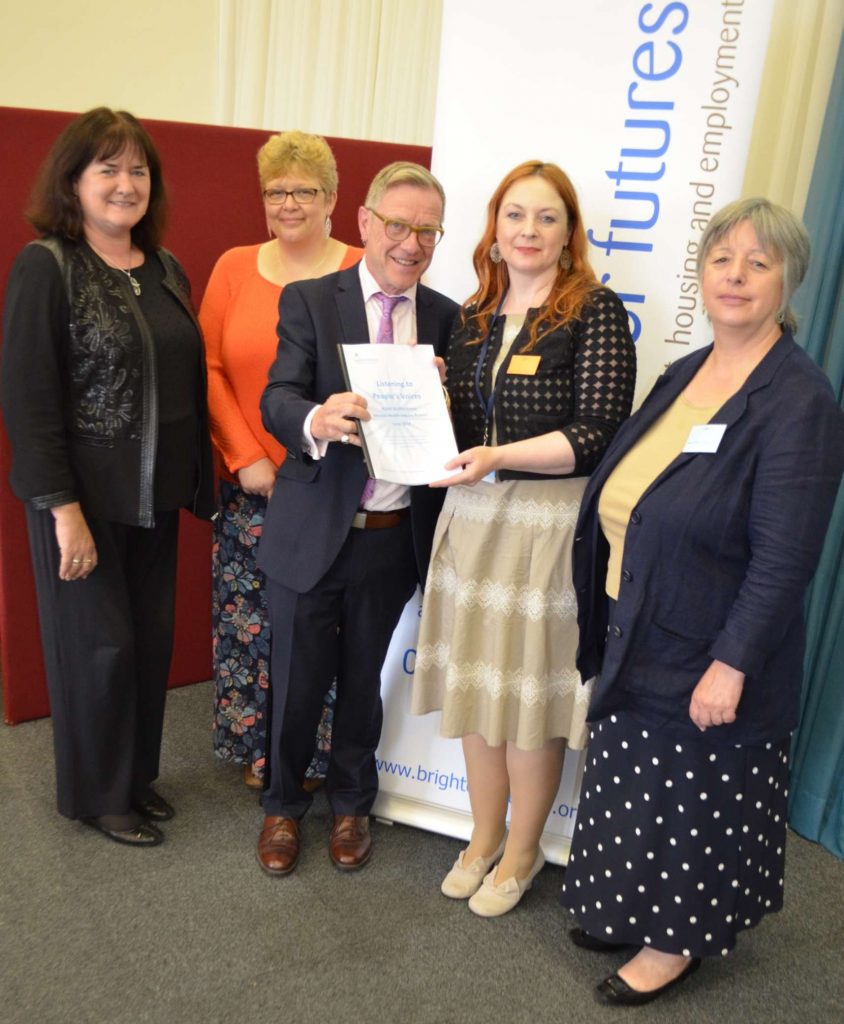Police and Crime Commissioner Matthew Ellis has welcomed a report which highlights the challenges faced by mentally ill people in North Staffordshire and Stoke-on-Trent.
The ‘Listening to People’s Voices’ report by Brighter Futures was launched at a special event in Stoke-on-Trent yesterday (Wed) which was attended by the PCC’s mental health lead Zofja Zolna.
The conference heard about the need for better out-of-hours crisis provision for mentally ill people and that police are often the first agency to respond in crisis, although not always the most appropriate. The need for early intervention and more joined-up services along with the vulnerability of mentally ill people to anti-social behaviour were also highlighted.
The findings reinforced ongoing work to stop police cells being used as a place of safety for people in mental health crisis to be held, unless they have committed a crime.
In February, at a meeting instigated by the PCC, senior representatives from Health, Social Care, Local Authorities and Police in Staffordshire signed up to a series of principles which make it a ‘serious incident’ for police custody cells to be used in this way, automatically triggering a multi-agency review to confirm the appropriateness or otherwise of use.
Mr Ellis said: “This excellent report from Brighter Futures highlights the need for a better, more joined-up approach to people who are in mental health crisis along with the need to intervene earlier to prevent mental health crisis in the first place.
“Police custody cells are fundamentally the wrong place for individuals with a mental health condition to be held unless they have committed an offence.
“Nearly all the agencies across Staffordshire and Stoke-on-Trent that can make change happen are now working together at the highest level to make sure change actually does happen.
“What I am certain is that the determination and genuine ambition that is being shown will result in more effective support and a better, fairer system.”
Mike Wolfe, Chair of Brighter Futures, said: “We wanted to find out what it is like to live with mental ill health in North Staffordshire. We talked to people about their experiences, the services they have accessed and those they haven’t.
“We hope that the report will tell policy makers and health bosses what it is really like to live with mental ill health and influence the development of services in the future.”
107 people with suspected mental health conditions were held in police cells over a nine month period ending December 2013 and a report commissioned by Mr Ellis showed that nearly 20 per cent of total policing time across Staffordshire and Stoke-on-Trent is spent dealing with mental health-related incidents.
The ‘Staffordshire Report’ was instigated and published following two months’ of meetings the Commissioner held with frontline police officers and others to discuss the issues that affected policing most.
The principles which have been formally adopted by agencies in Staffordshire and will be realised in the next year are:
- All detentions under Section 136 of the Mental Health Act in police custody will have triggered a multi-agency review to see whether they are ‘exceptional’.
- All frontline police officers will have clearly defined access to mental health advice, support and information.
- The total number of Section 136 detentions managed in the NHS and on an ‘exceptional basis’ in police custody will have fallen.
- The proportion of Section 136 detentions requiring an immediate intervention from mental health services will have increased.
The eventual ambition is that no-one detained under Section 136 of the Mental Health Act will be held in police custody.
For more details on the Brighter Futures report visit http://www.brighter-futures.org.uk/



